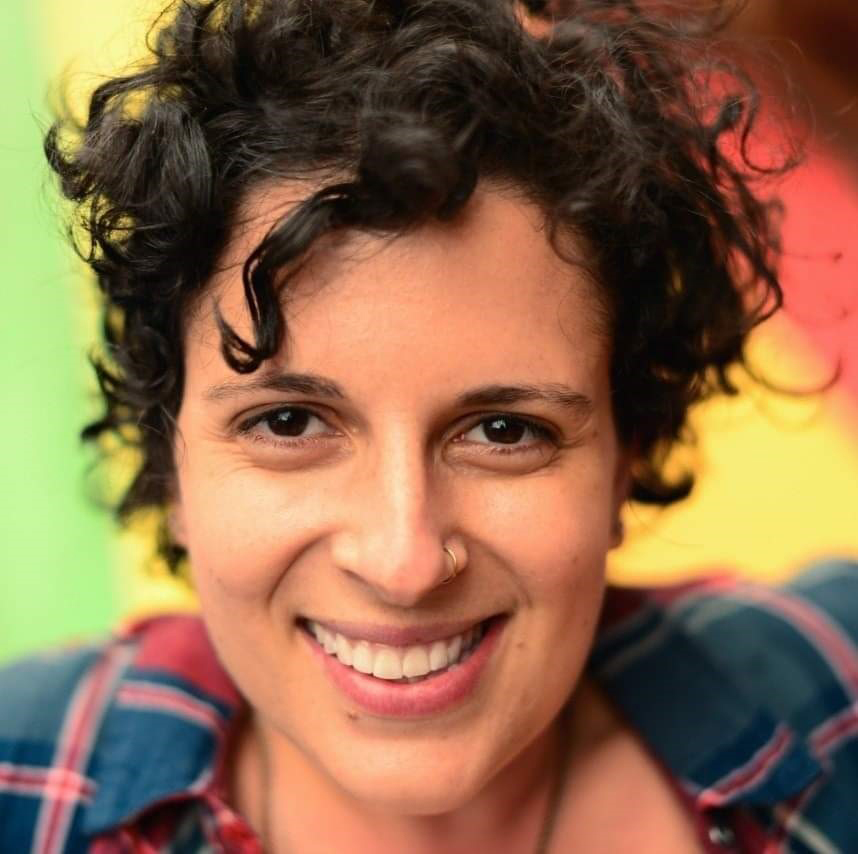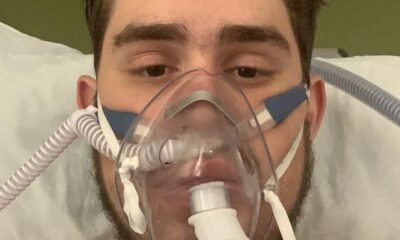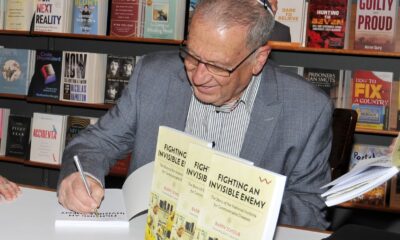
Opinion News

I survived COVID-19 twice
I’m Nicola Date, a 32-year-old arts manager, comedian, and costume designer, mother, and two-time COVID-19 survivor. I have had a rare behind-the-scenes glimpse through hospitalisation.
When COVID-19 hit South Africa, it felt like a fictional character, but I soon realised the gravity of what was ahead of us. In April, I started trying my best to avoid this horrible illness.
I was fit then. Running brought me immense joy, and grocery shopping was my only other activity. In June 2020, I developed the worst headache of my life, this coming from someone who has suffered from migraines for most of it.
Soon after, I could no longer taste or smell, I became lethargic, had aches and pains, a sore chest, and a low-grade fever. It was time to go to the doctor.
When I arrived at the doctor’s rooms, the nurses gave me a COVID-19 form, and I ticked every box. I was immediately sent to sit in the isolation waiting room before being sent for a COVID-19 test. When filling out my contact form, I was thankful that I had seen only members of my household, but I also had to put my local Spar and my daughter’s school as contacts.
While waiting for the results, I began to get sicker and sicker. I could feel my breath entering my body with great difficulty.
I tested positive. The government sent me an SMS to stay in quarantine, and my doctor called me with the news. I was told to stay indoors, take vitamins B, D, and C, and paracetamol (anything stronger can cause clotting in a COVID-19 patient) and to call an ambulance if I could no longer breathe. Eventually, I got so sick that I could barely walk, talk, or watch TV as my brain was foggy and I couldn’t handle stimulation.
I cannot thank the Community Security Organisation’s Assist program enough for supporting me throughout my journey, and guiding me in moments of oxygen loss. I know that not all South Africans have had this privilege, and I can’t begin to imagine the fear of facing this alone, without solid support. I can’t imagine going to a testing station, getting a government SMS, and then having to experience COVID-19 without having the money to buy the required tools and medication.
Eventually I came out the other side. I could watch TV, and began to feel like a human again, albeit a broken one.
I developed post-COVID-19 fatigue, and it took me three months until I was somewhat myself again. I started to jog again, and I was slowly rebuilding my fitness levels.
The COVID-19 numbers were decreasing, and everything felt bright again. I was finally able to do some work in the arts. I think many of us believed the end was in sight and COVID-19 would die with 2020.
At the beginning of December, I developed flu-like symptoms and went to the doctor thinking that I had something mild, but to my surprise, she sent me for a COVID-19 test. Once again and five months later, the test was confirmed positive. The moment I got the results, I panicked, and post-traumatic stress disorder kicked in. I began to remember the trauma of my first COVID-19 experience. Little did I know what was about to hit me.
With my second bout of COVID-19, my oxygen levels were stable, but the pain was worse than anything I had ever experienced. My body felt like a mess, I was bleeding, and I could hardly walk or talk. I felt like my body was running at 10% capacity; a shell of my former self.
An ambulance was eventually called, and the next challenge was to find a hospital bed. After about 30 minutes, they found a bed at Christiaan Barnard Memorial Hospital in town. By the time I got there, the bed was gone, and the process continued for what felt like an eternity, before they found me a bed at Cape Town Mediclinic.
The medical unit was completely full, and the nurses told me they had about 20 patients to tend to. In my two days of hospitalisation, three people left my room and were replaced. One went home, and two went to the intensive care unit (ICU). The nurses had to wear their uniform, an apron, a mask, a shield, and also had to scrub up and then down, every time they entered our room.
These incredible, overworked, exhausted, and boiling hot humans were so kind, patient, under immense pressure, and yet did their job with a smile. Everyone in the unit was somewhat critical, and it wasn’t even an ICU. You need to be extremely sick to be hospitalised for COVID-19.
Once I was stabilised, I was sent home to recover, making room for the next person who needed a bed. Being in hospital without visitors was a wild experience. There were no friends and family members to take you to the loo or help you wash, the nurses being responsible for it all.
I’m once again suffering from post-COVID-19 fatigue with brain fog, a lingering headache, and my body is stripped of vitamins, for which I’m being supplemented. I’m totally burnt out, but on the road to recovery.
During my recovery process, I sadly lost a close cousin who had been on a ventilator for a month and the adults in my family had to experience the trauma of a COVID-19 funeral. For my precious daughter, the evil and scary illness that she learnt about at school is a big part of her reality.
Please stay safe, and try to socialise only outside and untouched. Parties aren’t worth it. Alcohol isn’t worth it as the hospitals are full and it causes you to let your guard down. We will get through this only if we are safe and vigilant. I urge you.
- Nicola Date is a Cape Town based designer, comic, theatre entrepreneur, wife and mother to a six-year-old girl.










